Perhaps the ‘expedition’ was not exactly what we had expected from it. The adventure component was somewhat disappointing, the predictability increased by the week. Compared to earlier trips we have made, there was not so much variety in landscape – after we moved from the savannah of Chad and Northern Cameroon to the predominantly secondary jungle and plantation environment, from South Cameroon onwards. Not much in culture: of course we have seen several dances and ceremonies, put on for the tourists and therefor of questionable authenticity, and I can be convinced that these are also performed within the communities at specific times, appropriate moments, without tourists. But there is little else, there is not a lot of tangible evidence of the powerful ancient kingdoms, except for the odd mud palace in Porto Novo or Abomey, or the Goui palace outside Ndjamena. Maybe the Bamileke and Baboun palaces in Western Cameroon were the most interesting remnants of indigenous culture. Having said so, there may be more than I am aware of.
In any case the examples above are more recent than some of the colonial structures that remain, of which the slave castles are by far the most impressive. Many other colonial buildings are sadly in a much poorer state than what we encountered in Asia, or in South America. And post-colonial architecture – at least from what I have seen – is not that attractive, and often isolated, one building on its own, amidst deteriorating housing, or crumbling shops.
And yet, I don’t regret having made this trip. The tourist sights may have been limited, the individual countries were – even from a few days observation – strikingly different. Benin has its Voodoo culture, pervasive in society, yet, why does it stop at the border? There may be a bit of overflow in Nigeria, and in Togo, but it appears to me a geographically very restricted religion. Benin is a small country, and so is Togo, its neighbour, and yet, from the half day we spent in Togo, it looked a so much more vibrant society than from what we have seen in entire Benin. The countrysides from Cote d’Ivoire and Sierra Leone look so much more organised, neat, than that of chaotic Liberia, which is sandwiched in between. Some of this can probably be brought back to colonial history, but each time we thought we had nailed the differences between Francophone and Anglophone, we would enter another country that wouldn’t fit the pattern.

generally West Africans are friendly people, even if this notice we came across in Accra suggests otherwise
Despite the differences, there is one common denominator in West Africa, which I have become very aware of in the past seven weeks. This part of the world is just so far behind what we are used to in Europe. It is so far removed from where we are moving to in Europe, and in the Americas, and in much of Asia. And they are never going to close the gap. Impossible. Sure, people have mobile phones, and in many places there is internet access. But any other progress is slow, or non-existent; it is a long time ago that I lived in Tanzania, yet, lots of situations and lots of observations are awfully familiar (I think, although I do recognise that 35 years no doubt plays tricks with one’s memory, mine to).
I am sure lots of studies have been carried out about the how and why of poverty in West Africa, the lack of progress, the lack of economic development despite a booming population. I am no scholar, I don’t claim to have miraculously understood everything that’s wrong with this part of the world in the last seven weeks. But there are a few things that come to mind.
Having read about the recent history of all of the countries we have visited, you have to recognise a certain pattern, of instability caused by local strongmen who vie for power. The number of coup d’ etats is staggering, and even though most of the countries we visited haven’t had one for a while, that’s no guarantee. See nearby Mali and Burkina Faso, in the past few years. Or look at Sudan, as we speak! With politicians, or army commanders, that see the state as their personal estate, from which they can pluck at will, it is difficult to imagine how national interest is going to prevail. And I know, ‘national’ is a loaded word in many of these countries, because of different tribes, different languages being spoken, different individual interests, disputed borders even, but some form of overarching state apparatus that is working for the country rather than an individual power broker is essential for progress. It is mostly non-existent, or very weak. And I cannot see how this is going to change in the near, or even distant future.
Without such a state apparatus, especially a transparent and reliable legal system to which individuals at all levels can turn to address injustice or enforce contracts, people will be dependent on connections, family or otherwise. And connections need to be oiled, or at least rewarded for doing you a favour. Without connections people who need to have things done just walk against a wall, often an uniform-wearing wall, that only moves after payment. Early on I already noticed that the chiefs and the uniforms were generally better fed than ordinary people. Corruption is not going to go away. It is not, full stop.
And then there is the issue of individual productivity, and of pride in your work. A most sensitive issue, I noticed. Of course there are lots of exceptions, but I cannot get away from the idea that people just don’t work so hard and don’t really care about what they deliver. Everything takes an inordinate amount of time, with or without corruption. More often than not a simple meal in a restaurant takes one-and-a-half hours to reach your table. Cold. And the ones that came after you will have to wait even longer. Buying something in a shop, and paying for it, is an ordeal, there is no sense of urgency on the side of the shop attendant. Changing money in a bank: I wrote about that. Of course, things are not helped by the overwhelming heat, by faulty power systems and other imperfect infrastructure, or by the fact that there is always a lack of small notes, a lack of change, which hampers every small transaction. Official rules that make the uniforms write down passport details in books several times over don’t help either. But in the end it is very simple: if productivity doesn’t go up, turn over doesn’t go up either, and you are not going to make more money. Of course, there are lots of other factors that influence the economy of an individual: lack of education, lack of opportunity, subsistence agriculture, no doubt some unfair treatment from some rich country. But ultimately the individual West African needs to accept some responsibility for his or her situation. And that’s not happening on a large scale, or so I think – note the ease with which people, normal people, turn up their hand to the white man to unashamedly ask for money. I can understand that people want to migrate to Europe, to where the pots of gold are. I can even understand that they are prepared to take extraordinary risks for that. But I am not sure that that is the only option open for young people with drive, initiative, risk appetite and a certain amount of money. Easily said, I know, but collectively everybody – including these migrants – would be so much better off if they would invest their skills in their own country. And walk a little faster. With pride and dignity.
Impossible to achieve? Look at The Gambia, look at the Ngala Lodge, or the hospital where Sofia was treated. Here people worked, worked hard, took pride in their work, showed competence. I don’t know what it is, but obviously The Gambia is doing something other countries aren’t doing. They seem to be able to motivate people, and it seems to pay off.
Now maybe that’s a reason to go back, one day, and see if we can work out what that is. Can we, at the same time, also complete some unfished business, in The Gambia and in Senegal. And maybe one or two other countries, at our own pace. Look, we haven’t been home a week, and I am already making plans to return. So, the trip must not have been that bad, after all!
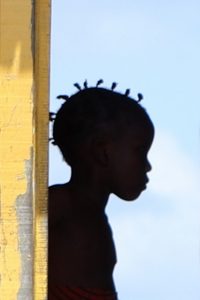



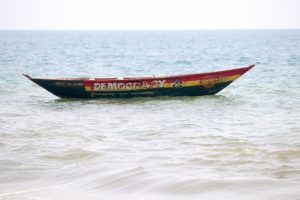

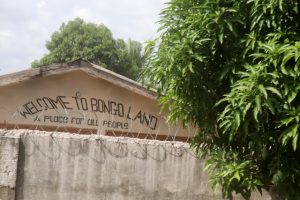
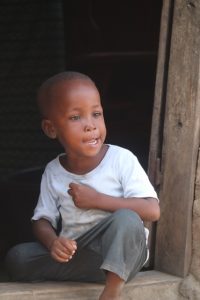
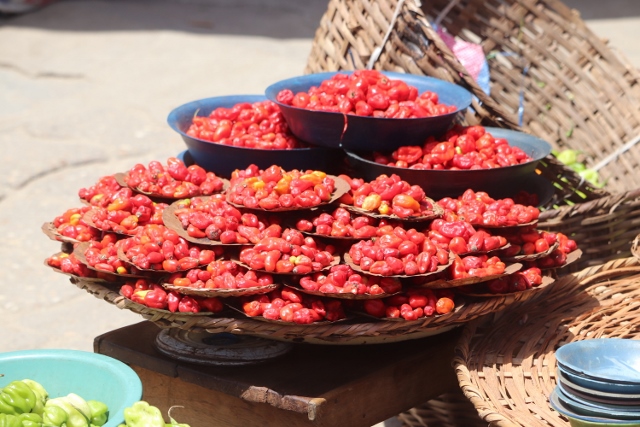











And that’s a nice conclusion and a great experience!!